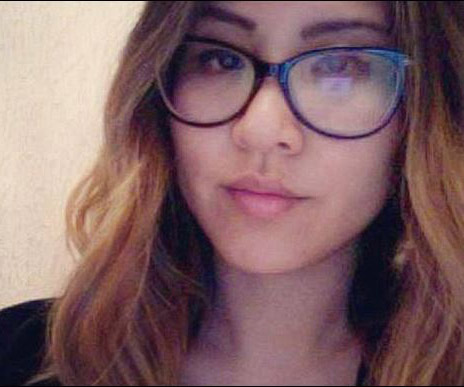Kate Pagnozzi, 22, Paradise, SA, shares her true life story:
My fingers were shaking with nerves as I dialled the number.
When the receptionist at the brain surgeon‘s office answered, all I could muster was a whisper.
“Hi… yes, I have a referral and need to book an appointment to see the surgeon,” I managed. “I can get there this afternoon.”
“Sorry, he’s on holidays,” she told me. “He’ll be back in a week but the first appointment I can get you is…”
I felt myself tense up. I hated the idea of waiting a week with this thing growing inside my head. I wanted it out straightaway.
“…the 4th of September,” she finished.
September? That’s three months away!
“But I’ve got a brain tumour,” I pleaded, feeling my eyes filling with tears at the very mention of the word.
“I need to see him as soon as he’s back.”
“Sorry, love, but he’s a very busy man,” she replied. “Give us a ring each morning in case we get a cancellation.”
I was staggered.
Minutes earlier, I’d been told I had a suspicious growth inside my skull.
For all anyone knew it was getting bigger by the day and infecting other parts of my body with cancer.
I might be dead in three months!
Every day for the next three months, I called. “Any cancellations today? Please I’m really worried,” I’d say.
But the answer was always the same: “Sorry, try again tomorrow.”

Me (right) with my sister.
Mum even phoned up in a rage and demanded someone help me, but it was no good.
It was the longest, most terrifying time of my life.
When I finally got to the surgeon, I was told the tumour was now the size of a tennis ball.
How much had it grown in the time they’d made me wait?
It was tangled up in my brain’s major nerves, so they couldn’t remove it all without causing serious brain damage.
“There’s a chance you could go blind,” the surgeon warned. “And you might lose feeling to some of your face.”
By then nothing anyone said could shock me. It was like I was watching myself in some horror film.
I had to take some time off from my nursing degree at uni to focus on my health.
A few weeks later, I was wheeled off for surgery with my parents and older sister Vanessa by my side.
The operation lasted for 13 hours.
The surgeon had to cut through a major nerve to take out as much of it as he could.
A week later, I was allowed home while we waited for the biopsy results.
Luckily, it was benign.
I was able go back to uni, but I suffered constant memory loss and found myself getting confused over the slightest thing.
I had double vision and lost feeling in the right side of my face, including my gums.

Receiving radiation treatment
I was told I’d need radiation treatment in the future so would have to freeze some of my eggs if I wanted children.
I had regular MRIs to monitor the part of the tumour that couldn’t be removed.
Eighteen months after the surgery, I was told it had started growing back.
“You’ll need treatment soon or you could go blind,” a specialist told me.
I gasped. I’d prayed this nightmare was over, but now I was going back into hospital.
I just wanted it over as quickly as possible.
“I’m afraid there’s a four-year wait,” he went on.
What? Surely I’d misheard.
I had a tumour that was growing in my head for God’s sake.
“The radiation machine you need won’t be available until 2022.”
My mind flashed back to my three-month wait to see the surgeon.
If I’d had that treated straightaway, I probably wouldn’t be in this nightmare.
Now it was happening again.
How could it be? Australia is a rich nation, yet a young woman with a deadly brain tumour can’t get it treated until it’s probably too late!
“Another option is having the procedure abroad,” he continued. “They do have suitable facilities in the US and Europe.”
I felt a glimmer of hope. He told me about a government scheme called the Medical Overseas Treatment Program (MOTP) which pays for Aussies with life threatening conditions to be treated in other countries.
As the cost of radiation was $70,000, it was my only option.
As soon as I got home, I contacted them and explained my position.
The lady was lovely and took down all my details.
“Is the tumour cancerous?” she asked.
“Not yet,” I replied, “but it’s growing so there’s a chance it will be.”
“Oh,” she said. “Have you been told it’s terminal?”
I told her again that it was going to make me blind and might well be terminal by the time I can get it removed in Australia. That was why the MOTP was my only hope.
“I’m so sorry,” she replied, “but the scheme doesn’t cover your condition.”
I wasn’t dying, so I wasn’t eligible. It felt like she was condemning me to death.
I’d been let down by the medical system not once, but twice.
I’m desperately trying to raise enough money so I can travel overseas and get treatment before it’s too late.
All I’ve ever wanted to do is be a nurse and help people.
When I go blind, that dream will die. All I want is the chance to live.


